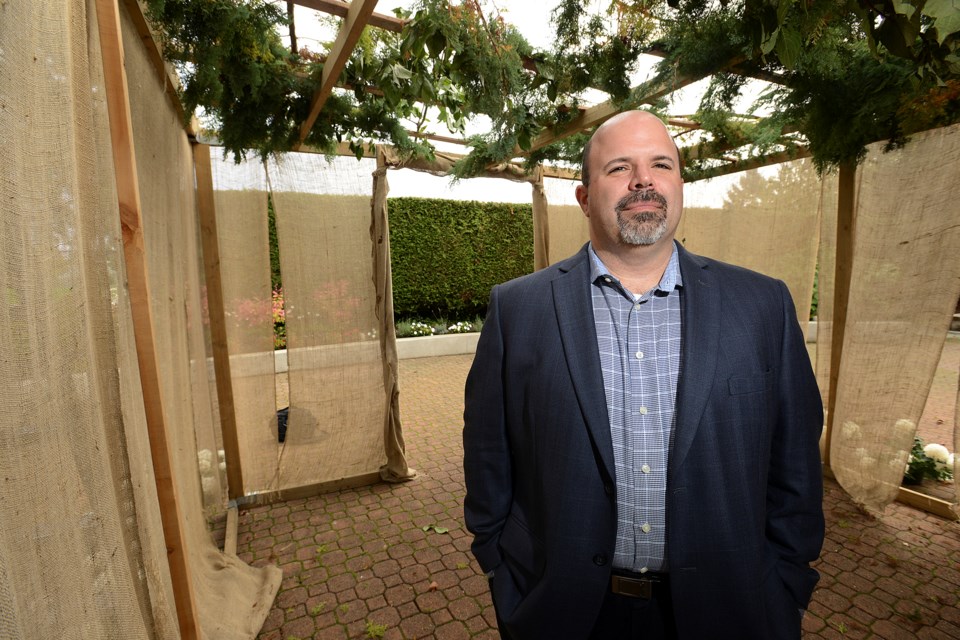My friend Bijan Ahmadian planned to celebrate his sister’s birthday last weekend. The family was gathering here in Â鶹´«Ă˝Ół»and his sister was ready to head north from the Seattle area, where she has worked for Microsoft for the past five years. Then came U.S. President Donald Trump’s executive orders on Friday. One of Trump’s orders banned the entry of refugees into the United States for 120 days. Another banned the entry of citizens of seven Muslim-majority, including Iran, from entering the United States for 90 days.
All the members of the Ahmadian family were born in Iran and are now Canadian citizens, with Canadian passports. His sister has a green card to work in the States. Two other sisters live in Â鶹´«Ă˝Ół»but work for American agencies — NASA and Boeing — and travel frequently for work.
As it was for thousands, perhaps millions, of people, the family’s weekend was filled with confusion.
At one point over the weekend, the family heard that green card holders who have citizenship from those seven countries were being denied re-entry to the United States. Then, on Sunday, the White House and the State Department declared that affected green card holders would be allowed to return.
Still, the Ahmadians are cautious.
“We don't trust the process,” says Bijan, who is a Â鶹´«Ă˝Ół»lawyer. “It's changing by the hour.” If his sister were to come up next weekend, they can’t be sure that some new wrinkle or interpretation wouldn’t prevent her from returning to her home and work. The family is planning to head from Â鶹´«Ă˝Ół»to Seattle instead, hoping that the worst that could happen is that they’ll be turned around and sent home.
Another friend of mine, Alex Jacobs-Hajian, has several stories about how Trump’s abrupt decrees affect people he knows. One of his friends, permitted to work in Canada but holding an Iranian passport, had applied for a visa so she could visit the U.S. She received an email telling her not to bother showing up for her appointment with the U.S. border authority. Alex’s brother, a physician in Seattle, was advised by his lawyer not to leave the country, just in case.
These, of course, are comparatively lucky people. They have homes and jobs and, although there is confusion and perhaps difficult times ahead, they are not in a legal no-man’s land. Such is not the case for refugees who have been vetted, approved and were on their way to a new life in the United States when Trump issued his orders. We still do not fully grasp what the orders mean and groups like the American Civil Liberties Union and other grassroots activist agencies are challenging the edicts.
Meanwhile, in Canada … Â鶹´«Ă˝Ół»Rabbi Dan Moskovitz had trouble sleeping Friday night after hearing the news of Trump’s orders. He hastily pulled together a few dozen other rabbis, ministers, priests, imams and other clergy and held a media conference at Jack Poole Plaza. The list of clergy who have signed on to their “call of conscience” continues to grow. The statement urges the government of Canada to issue temporary resident permits to U.S.-bound refugees who have valid visas but are stranded at ports of entry or in transit because of Trump’s executive order.
“Each of our scriptures and holy books tells a story of having been refugees and strangers ourselves, having been outcast or persecuted,” Moskovitz said Sunday morning. “These sacred texts are there to remind us to see ourselves in the suffering and misfortune of others, because we were once them — we are all immigrants. To some degree, we have, every one of us, been the other, the widow, the orphan, the stranger. We have been here before and we promised and we have prayed that this would not happen again. Not in 2017. Not in North America.”
Trump’s executive orders had added resonance for people who, apparently unlike Trump or his advisors, have a grasp of history. Friday was International Holocaust Remembrance Day. The Holocaust occurred not solely because of Hitler and the Nazis; its magnitude was possible only because the United States, Canada, and every other country with the sole exception of the Dominican Republic closed their doors to refugees until it was too late.
The refugees affected by Trump’s orders are largely but not exclusively Syrians.
“These are refugees who are fleeing war-torn countries,” Moskovitz said. “These are immigrants holding valid U.S. visas for travel. These are our brothers and sisters. To obtain the visa they hold in their hands, they have gone through years of extensive screening and processing and now at the moment when they arrive at freedom’s shore, the U.S. government, on the direct orders of President Trump, closes its doors to them.”
The multi-faith assembly Sunday morning — as well as affirming messages from Prime Minister Justin Trudeau throughout the weekend — provided a little light of humanity in a world that seems so bleak for so many. But as Sunday drew to a close, as Muslim Canadians gathered for evening prayers, someone entered an Islamic centre near Quebec City and murdered six worshippers, wounding many others.
To those fleeing persecution, terror & war, Canadians will welcome you, regardless of your faith. Diversity is our strength
— Justin Trudeau (@JustinTrudeau)
Ěý
Tonight, Canadians grieve for those killed in a cowardly attack on a mosque in Quebec City. My thoughts are with victims & their families.
— Justin Trudeau (@JustinTrudeau)
We do not yet clearly know the motivation of the perpetrator of this merciless act. But it occurred in the world at a time when the most powerful man on earth is perpetuating suspicion and fear of an entire group of people.
Resist that fear and suspicion. Through whatever powers we have, let’s try to counter the messages of hatred and scapegoating with words and actions of inclusion, acceptance and mutual respect. What we can do may be limited, but it is better than doing nothing. Salaam.
@Pat604Johnson



